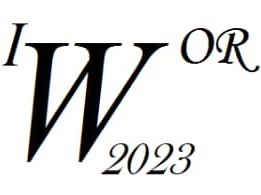Ponente
Descripción
Missing data is a common problem in general applied studies, and specially in clinical trials. An improper treatment of missing data may have serious implications for the accuracy of inferences of many clinical studies. Then, it is necessary to provide rigorously validated methodological tools that allow tackling this problem. Maximum likelihood and multiple imputation are recognized methods for their potential in handling missing data. However, there are simpler methods, like complete cases that, under certain conditions, may provide valid results too. In the present work we analyze if it is convenient or not to use complete cases in the framework of a case study and in a numerical simulation, by means of its comparison with the methods of maximum likelihood and multiple imputation under multivariate linear regression. The case study deals with two Cuban vaccines against COVID-19, Mambisa and Abdala. The study universe is made of Cuban individuals convalescent of COVID-19, with at least one month of having surpassed the disease. It is a two-stage study: in the first we compare four treatment groups, three variants of Mambisa given by their kind of use (imported nasal spray, nasal gouts and Cuban prototype of nasal spray) and Abdala. In the second stage we compare two treatment groups, Mambisa (Cuban spray) and Abdala. The main endpoint is IgG titles. As predictor variables we choose age, pathological history, and so on. In the first stage we have eight IgG measurements (days 0, 14, 28, 56, 84, 112, 140, 168) and in the second we have two measurements (days 0 and 14).

